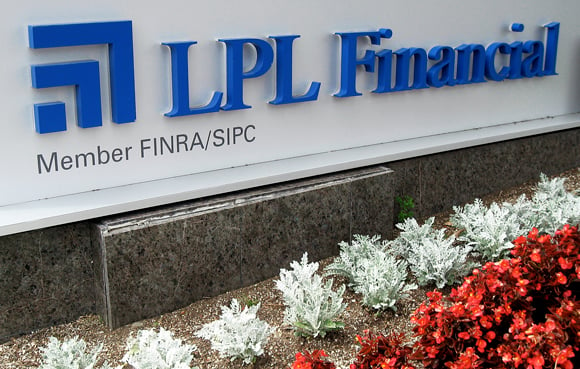A major broker-dealer is lobbying Congress to authorize a self-regulatory organization for investment advisers because it says the lack of such oversight is tilting the market toward advisory firms.
Over the last two years, increasing regulation has driven the advice industry toward the “lowest common denominator for regulations,” which is the investment-adviser platform, Mark Casady, chairman and chief executive of LPL Financial, told an audience today at the Financial Industry Regulatory Authority Inc. annual conference in Washington.
“We have an incredibly uneven playing field that is becoming more uneven each day,” Mr. Casady said. “We have to have an SRO for both [broker-dealers and advisers]. We have to be sure we're evenhanded.”
The Securities and Exchange Commission delivered a report to Congress in January that outlined three ways to increase oversight of investment advisers: allow the SEC to charge user fees for examinations, establish an SRO for advisers, or extend Finra's oversight to advisors who are dually registered as broker-dealers.
The report was mandated by the Dodd-Frank financial reform law. Congress must authorize one of the three options.
Investment advisers are fiercely resisting the notion that Finra, the SRO for broker-dealers, should also oversee investment advisers. They worry that Finra's rules-based enforcement of the suitability rule – which requires brokers to recommend products that fit their clients' needs – gives it a poor foundation for conducting oversight of the principles-based fiduciary duty. That duty requires advisers to act in the best interests of their clients.
Finra, which is seeking to become the adviser SRO, has said that it would develop a regulatory regime for advisers that fits the advisory business model.
LPL Financial is deeply involved in lobbying lawmakers to support an SRO, hiring a lobbying firm in Washington and setting up a Capitol Hill outreach program for its advisers. But Mr. Casady doesn't foresee a resolution to this question for some time.
“There's lots of other issues in Dodd-Frank that are attracting a lot more attention,” Mr. Casady said in an interview after speaking on a panel. “I wouldn't be surprised if this is a three- to four-year discussion. We're settled in to do that.”
The brokerage executives who spoke at the opening of the Finra conference all expressed support for an issue that is related to the SRO question – extending fiduciary duty to broker-dealers who provide retail investment advice.
In a separate report to Congress, the SEC recommended promulgating a universal fiduciary duty regulation. The commission has the authority under Dodd-Frank to proceed with rulemaking but has indicated that it will not do so until later in the year. The two Republican commissioners and Capitol Hill Republicans assert that the fiduciary report lacked sufficient economic analysis.
“This is an opportunity for us to bring broker-dealers to a fiduciary standard,” said Sallie Krawcheck, head of Bank of America Merrill Lynch's Global Wealth Management division. “Acting in the best interests of clients is in the best interest of clients. Of course, the devil can be in the details.”
James Weddle, managing partner of Edward Jones, cited similar concerns about the nitty-gritty of any fiduciary regulation.
“A uniform standard is where we need to be,” he said. “But a one-size-fits-all is not necessarily best for every investor.”
The brokerage executives agreed that disclosure standards must be elevated and adopted across the industry — a process that will take much time and effort.
Ms. Krawcheck criticized what is often “pages upon pages upon pages upon pages” of disclosure documents.
She said that Merrill is “challenging ourselves as a business” to communicate with clients “in a way that is blunt, straight to the point.”







